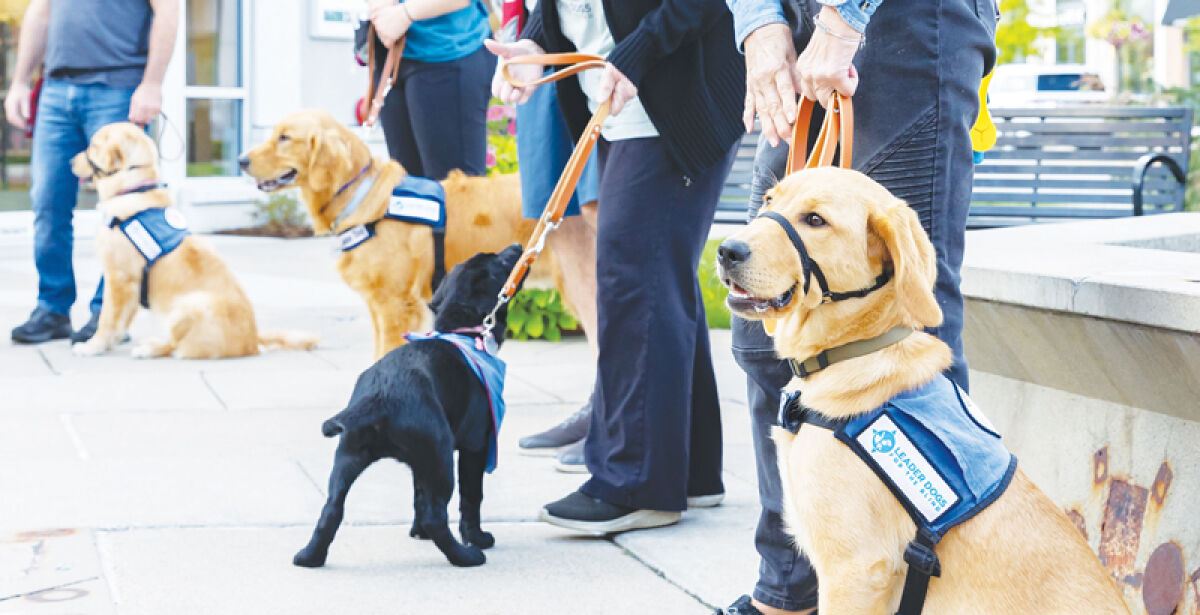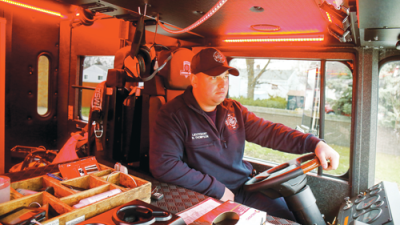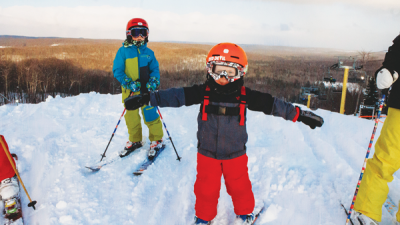METRO DETROIT — For those who seek to build bonds with animals, getting a pet is one way to go. But not everyone has the time or space to commit to a furry friend for years.
For those whose love of animals runs against their time or spatial commitments, volunteering may be a better approach.
Volunteering at an animal shelter is one way to help a variety of animals. At shelters like the one operated by Macomb County Animal Control, volunteers are able to work with or for the benefit of animals in many roles including working at adoption events, photographing pets, grooming animals, walking dogs, taking part in the feline friends group and helping greet people as they arrive.
“For people who can’t have an animal at home, I think it is the best of both worlds here because it is really hands-on,” Macomb County Animal Control operations assistant Lori Hampton said. “You can take dogs for a walk. You can help with enrichment. There are so many opportunities here that are just like owning a pet at home.”
Volunteers tend to vary in the pet-owning backgrounds, ranging from those who have never owned an animal to those who have spent their whole lives around them. Volunteering at the shelter allows people to interact with a wider number of pets than they may be used to. Aside from cats and dogs, the shelter houses birds, reptiles, pigs, rabbits and other such animals. Volunteers can also see what being around more common pets is like.
“A lot of (volunteers) are animal lovers,” Hampton said. “Perhaps they have recently lost a pet, and they are not ready to make that commitment to them, so it is very fulfilling to them to come in and fill that void of having a pet at home. They are also able to take pets for pets’ days out. A lot of our volunteers will take them to Metro Beach or Partridge Creek to socialize them.”
Getting involved with Macomb County Animal Control as a shelter volunteer involves filling out an application available at macombgov.org/departments/animal-control and going through orientation.
For those who are able to keep animals at home but may not be able to have pets for long periods of time, volunteer opportunities through Rochester Hills-based nonprofit Leader Dogs for the Blind can be a way to make connections with four-legged friends.
“We have more volunteers than we do team members, so we really could not do what we do without them,” said Christina Hepner, Leader Dog’s digital marketing manager. “The things that (volunteers) do for our mission is incredible. Volunteers really mean the world to us, and we are so thankful for them … They’re really essential to what we do every day.”
Leader Dog’s volunteering opportunities with animals fall into two categories: raising puppies and hosting a breeding dog.
“Raising a future Leader Dog is when you have the dog for 12-15 months and you’re going through basic obedience (training) with that dog,” Hepner said. “You’re teaching the dog to sit and stay and basic obedience, and you have so much support. You don’t have to have ever had a dog.”
Puppy-raising volunteers are backed by a counselor from the organization and the wider community of fellow Leader Dog volunteers. After the 12-15 months are up, the dog is returned to Leader Dogs for the Blind to begin its formal training to serve as guides for people with visual impairments. Some dogs are deemed “career changed,” meaning they may become a different kind of service dog or become available as a pet.
Puppy raising can be done as a single-household endeavor or it can be done by a group. Primary and secondary raisers can split rearing responsibilities, while corporate volunteers and some college campuses can raise a puppy as a team. Puppy raisers are given the opportunity to name their puppy as well.
Hosting breeding dogs allows volunteers the opportunity to live with a matured animal for a number of years and is more in line with traditional pet ownership.
“Once a breeding dog retires, they actually become a permanent member of your family. They retire and they get to be your house dog,” Hepner said. “We specifically need hosts who will host a Leader Dog mom, and the responsibility of that is about two years and the dog will have four litters in your home.”
Prior whelping experience is not required, and the Leader Dog vet team and breeding department are on standby to help volunteers, though ample space and the ability to provide regular exercise and care for the dogs is required. Puppies are kept for seven weeks after birth before being brought to the campus. Volunteers are also able to volunteer for a partial period; they can be non-whelping or specifically whelping volunteers, as well as host a breeding dog for a limited amount of time.
To volunteer with Leader Dogs for the Blind, interested people are asked to attend monthly informational sessions on the first Wednesday of each month for puppy raising and the third Wednesday for breeding dog hosting. Applications are available at www.leaderdog.org/volunteer.
Informational sessions are held remotely and in person at the Rochester Hills campus.
 Publication select ▼
Publication select ▼





















